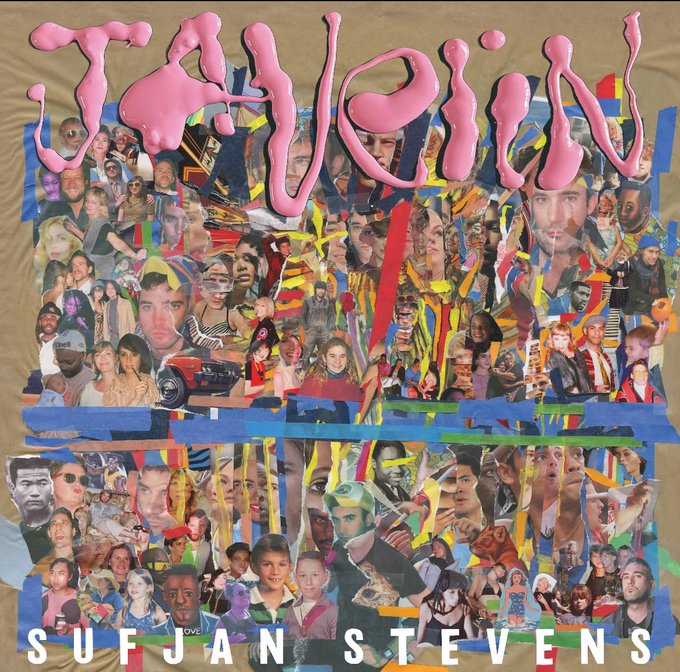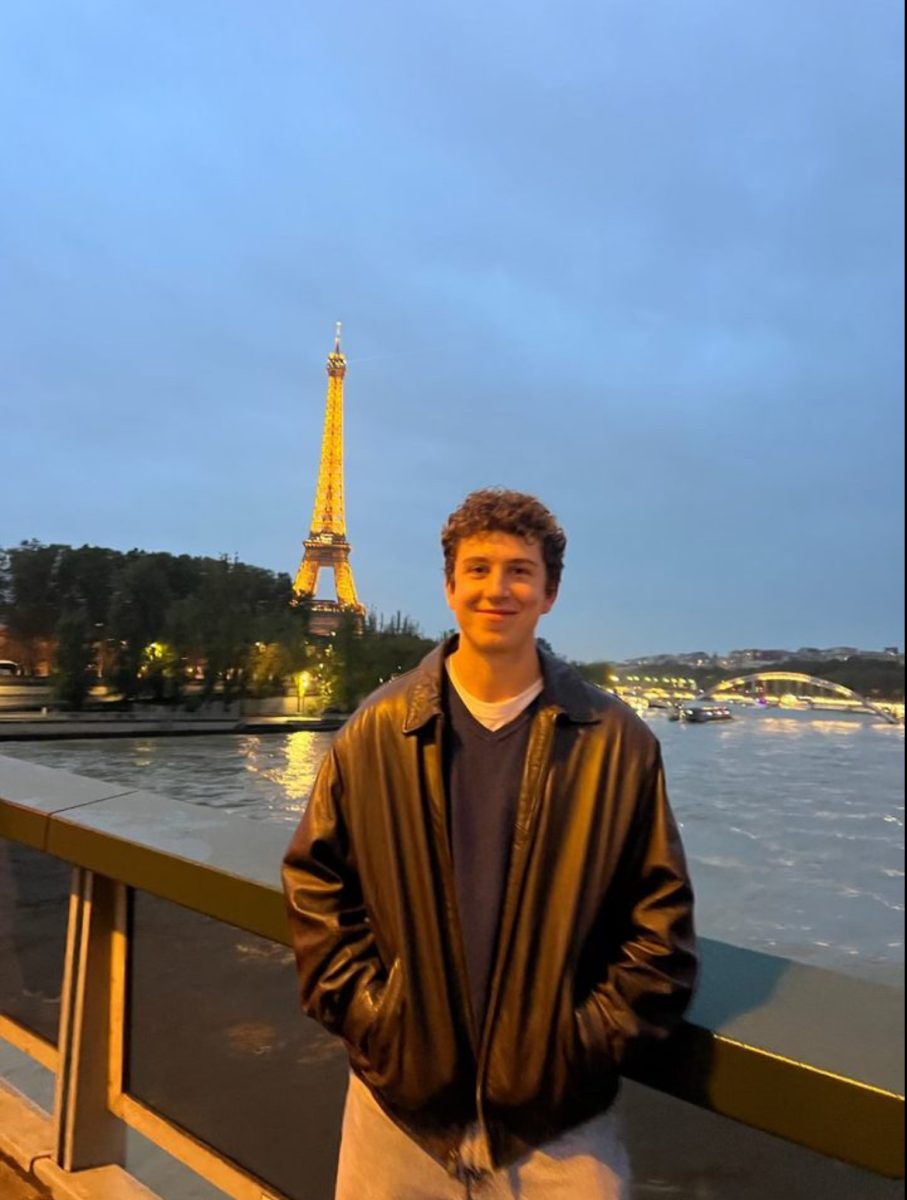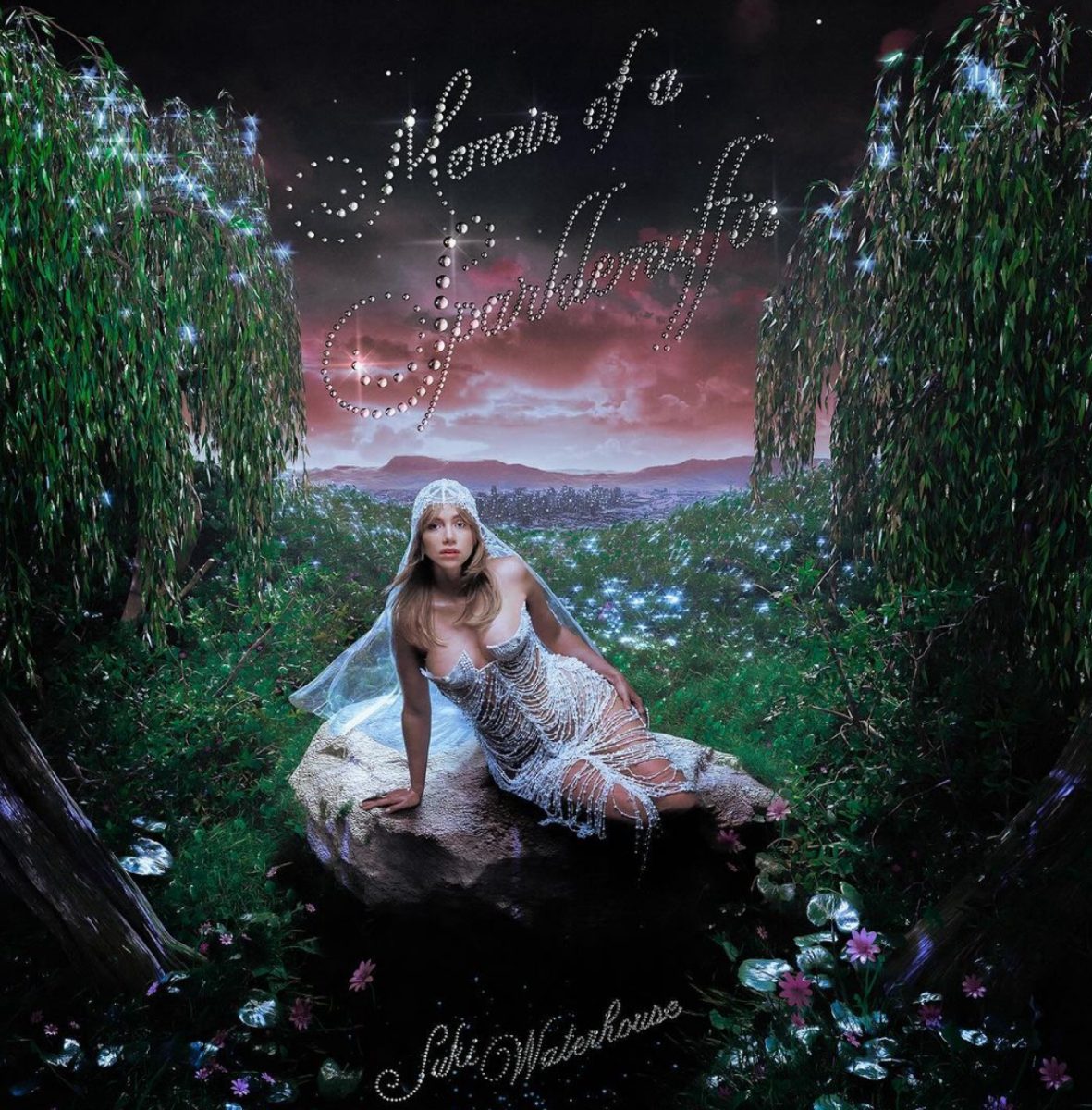Simply put, I’ve been absolutely obsessed with the music of Sufjan Stevens for the entirety of this past year — name a particular season, month or even a single day of 2023 and I’ll be able to tell you the exact Stevens song I had on repeat at that moment. When it was announced in August that Stevens would release a new album less than two months later, I could hardly contain my excitement. “Javelin,” released on Oct. 6, exceeds any possible expectations I could have dreamed up for a new Stevens album, an expansive and moving reflection on the multitudes of what it means to love and be loved.
“Goodbye Evergreen,” the opening track of “Javelin,” begins as if you’re sitting right next to Stevens at the piano: you can hear even the slightest of movement, from the pressing of the piano keys to the sound of Stevens’s breath against the microphone. The stripped back production slowly builds, confronting listeners with the weight of Stevens’s words: “something just isn’t right / a cut from the inside I’m frightened of the end / I’m drowning in my self defense.” As he contends with feelings of guilt and loss, the tension builds and breaks into an outpouring of emotion: a burst of electronic drums, ghostly synthesizers and a choir of disparate voices echo Stevens’s refrain: “goodbye evergreen / you know I love you.” It seems as if we’re re-entering a certain place in time, swept up in the undulation of Stevens’s memories. Many of the songs on “Javelin” catch the listener in this way — “So You Are Tired” moves in a similar manner, beginning with a steady drone of piano and eventually crashing into a beautiful collage of strings, woodwinds and a choir of voices that complement Stevens’s devastating and lilting voice. Shifting between lovesick and bitter, Stevens pleads with his lost love directly, admitting, “I was the man still in love with you / when I already knew it was done.” Though fluid and full of life, there’s still a deep sense of loss that permeates each song on “Javelin.”
Sonically, “Javelin” seamlessly melds together the many distinct eras of Stevens’s discography: there’s the melancholy and detached piano from “Carrie and Lowell,” buzzes of electronic instrumentation reminiscent of “The Age of Adz,” the brilliant flourishes of a full orchestra from “Illinois” and even a brief callback to “Seven Swans,” with the introduction of banjo on “Everything that Rises.” One of the things that I love the most about Stevens’s music is the sheer magnitude of his compositions: every single choice is made with a sharp intention, whether it’s the sweeping movement of a symphony or the simplest addition of texture. “Shit Talk,” an eight-minute long epic, perfectly exemplifies this balance of space — Stevens builds a well-oiled machine of interlocking parts, each entrance and exit of a secondary melody or atmospheric glimmer perfectly orchestrated to build up to a cathartic release. When he pulls back, it can be particularly affecting: “Javelin (To Have And To Hold),” running just under two minutes, is probably one of the most reserved gut-punches I’ve ever experienced in my life. Accompanied by muted picking, a soft hush of voices and a thin line of strings, Stevens parses through the guilt of unconsciously hurting the ones we love: “there’d be blood in the place where you stood / it’s a terrible thought to have and hold.”
Though “Javelin” largely centers around working through the difficulties of love, my favorite songs on the record are ones where Stevens indulges in his past memories of love. “A Running Start” begins with the image of a solitary Stevens looking out from a fire escape, contemplating the strangeness and newness of his feelings: “so now we have a running start / my body moves in mystic ways / I cross my arms to shield my heart / as everything turns into waves.” The possibility of love is ever-expanding, constantly growing in depth. “Will Anybody Ever Love Me?” might be one of my absolute favorite Stevens songs of all time: the first few lines see Stevens carefully reaching out to the world to open his heart back up to love: “run me over / throw me over / cast me out.” There’s a pulsing, urgent force that drives the song forward: the steady pluck of a banjo, the strained tone of Stevens’s voice, the beat of percussion and the light brush of piano building to a heavenly choir of voices and the fullness of strings and winds. The central question, “Will anybody ever love me? / for good reasons, without grievance / not for sport” is a lyric that has circled my brain ever since I first heard it; Stevens has the ability to pull an indescribable feeling from your chest, then put a name to it.
“Javelin” ends with a cover of Neil Young’s “There’s a World,” a surprisingly dark song made bright and hopeful by the sparse instrumentation and angelic voices of Stevens and his back-up singers. In light of recent news regarding Stevens’s health, I would be remiss not to say that it’s simply amazing to live in a world where a musician as generous and brilliant as Stevens can share such personal and vulnerable music with us, and that it wouldn’t be the same without him. “Javelin” is just one of many gifts he has offered in the last two decades of his career, and I urge you to listen if you haven’t had a chance yet.















